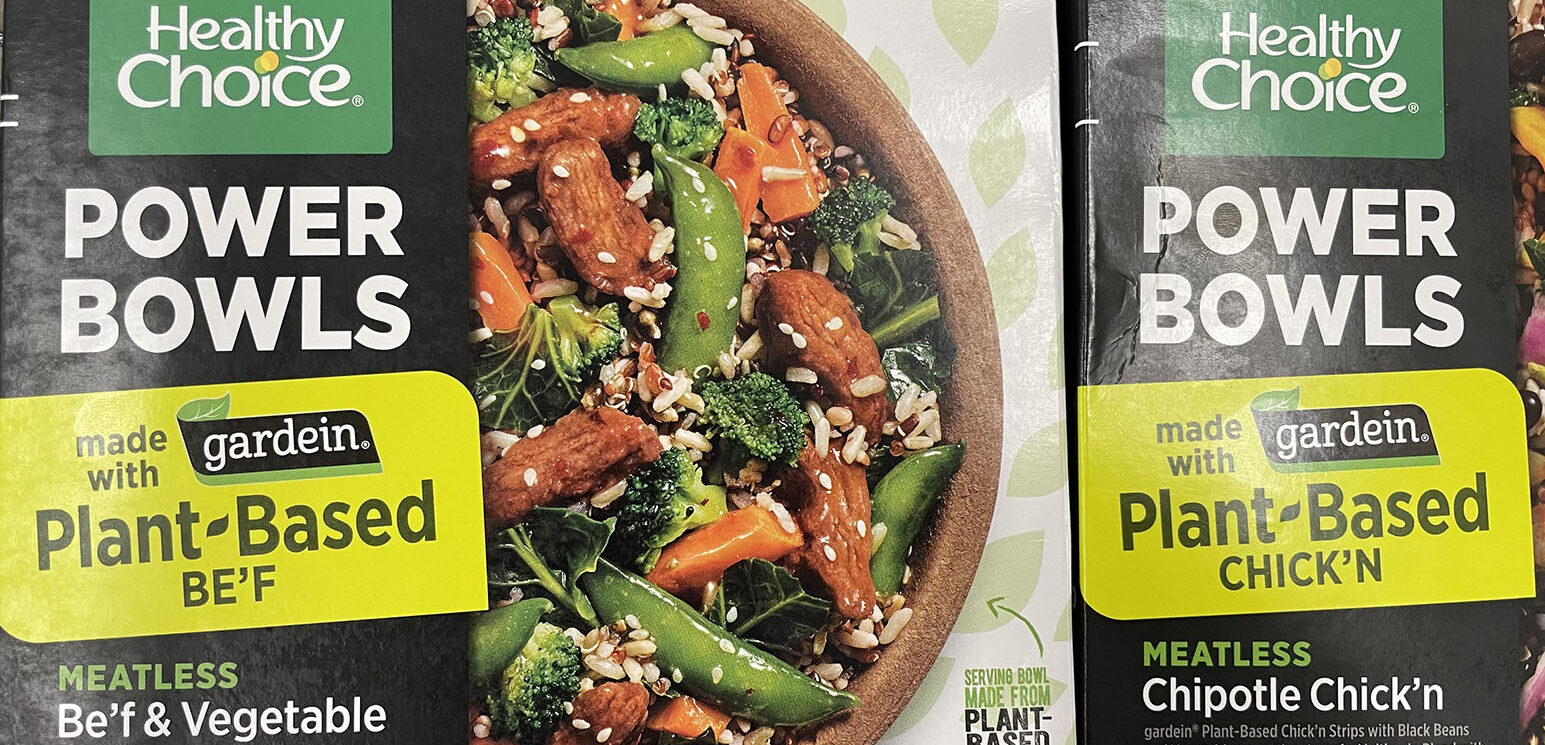We marketers can be a disingenuous lot. Since we live in a society that embraces caveat emptor–let the buyer beware–the burden is placed on the consumer, rather than the seller. The result is that marketers have a lot of leeway when it comes to the verbiage they use to name and describe their products. The result is that consumers must beware marketingspeak.
A Can Of Uncertainty
I think back to some of the beer cans in my collection, specifically to a 1967 entry named Gablinger’s Diet Beer. Never mind the fact that the words “diet” and “beer” should never be uttered in the same sentence, much less product name. What exactly does “diet” mean? That it has fewer calories? No calories?
And a year later, the Peter Hand Brewery in Chicago introduced its Meister Brau Lite, which was purchased by Miller Brewing Company in 1972. The rest is marketing history. Tastes great…less filling, or so the tag line went. But what the heck does “lite” mean? It’s not even spelled correctly, which, of course, allowed for some trademark wiggle room, until the word itself became generic. Does it mean lighter tasting? The beer weighs less? You weigh less if you drink it?
Turns out that Miller Lite, and all of the other light beers that followed, are really just alcohol delivery systems that allow you to drink more before you feel bloated and find yourself on the floor.
Yeah, we marketers can sell pretty much anything with the right wording. That’s marketingspeak for you.
Climate For New Products: Sunny With A Chance Of Marketingspeak
So when I saw that Panera (coming soon to Amarillo!) is the first national chain to label select items as “climate-friendly,” my attention was piqued. What exactly does “climate-friendly” mean? Does it mean less energy was used to craft them in the cafe? That they are friends with climate change? Or, the carbon footprint used to grow or raise the food is smaller than other items?
The purpose of labeling these items is to showcase the company’s sensitivity to the issue, of course. The company recognizes that “grains, fruits and vegetables are at the lower end of the scale, while dairy products and meat are at the higher end.”
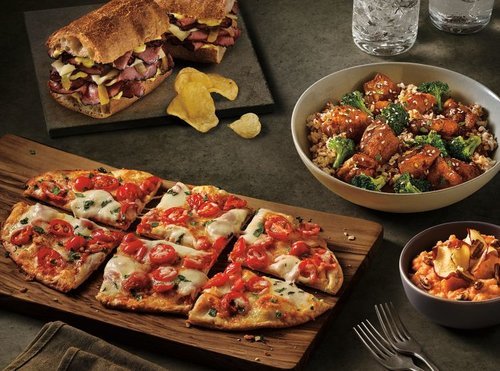
It’s All Relative
But if you think that only vegan items are going to get this badge, think again. The average consumer might be inclined to think that the focal entrees will be an herbivore’s delight. That’s just not necessarily true. Check out the photo above. Consider also their Broccoli Cheddar soup. The broccoli may leave a small footprint, but the cheese that smothers it not so much.
In other words, it’s all relative, and patrons must therefore sift through the claims and make wise choices. The feel-good aspect of the campaign is not lost on me, because it leaves Panera looking great. “Climate-friendly” is one of those over-used phrases that has come to have different meanings, depending on who is saying it, and who is hearing it. Smoke and mirrors perhaps? You decide. Sounds like marketingspeak to me.
Marketingspeak In The Garden
And here’s another increasingly over-used phrase: plant-based. Naturally, the vegan in me is excited to find the movement being mainstreamed, but I have to pay careful attention to ingredient lists anyway. (Full disclosure: I am non-judgmental.) Non-plant products have a way of sneaking in where you least expect them.
Like the new entree Birds Eye meatless frozen meal. It is made with veggies and Gardein’s plant-based Chick’N. The way the label is designed leads you to believe that this would be safe for me at least, especially since I am very familiar with Gardein’s many standalone products. They are very good, by the way.
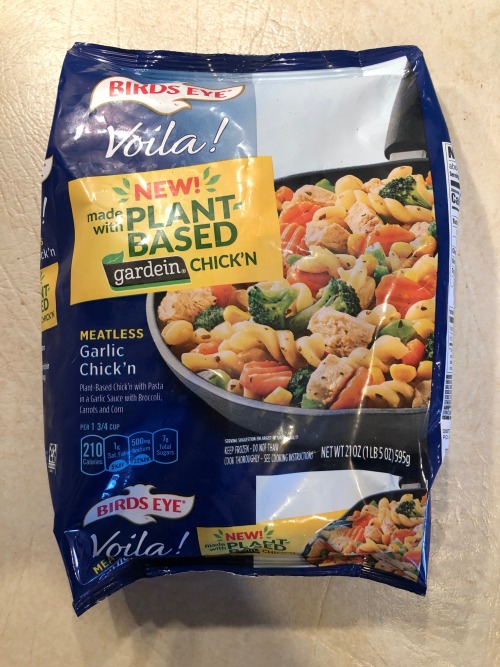
My mouth was watering when I saw this in my grocer’s freezer, so I bought it. Lucky for me, my curiosity saved me from cooking it the next evening when I saw the fine print, which listed milk as an ingredient. Gasp! I tossed it back in the freezer, and took it back to the store the next time I went for more groceries.
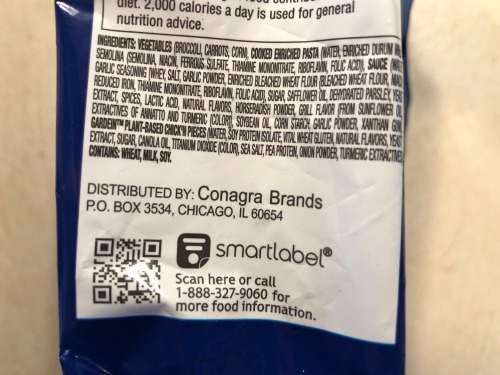
Pulling The Trigger
Clearly, Birds Eye knows which triggers will work, and “plant-based” is one of them. It’s not that they lied or anything, because they did come clean on the back. The label, though, makes it easy to assume the whole product is plant-based, not just some of it. My bad. I normally read labels, but this one slipped through. I fell for marketingspeak.
Now I don’t expect any sympathy. I chose this path, and I have to be just as diligent as a person with celiac disease or lactose intolerance. Marketers, though, will do the minimum required by law, although it sure would be nice if they would just tell everyone up front what the product does or does not contain.
Smoke (And Marketingspeak) Get In Your Eyes
Fortunately, there is one example of marketingspeak to which we can all laugh heartily. Not too long ago I saw signage on a convenience store window touting the new Winston green pack “made with 100% plant based menthol.” Now what kind of a message does this send? That you can smoke these and go vegan? Or even if you don’t take the vegan plunge, that you can smoke these and they will be less bad for you? This time marketingspeak goes up in flames.
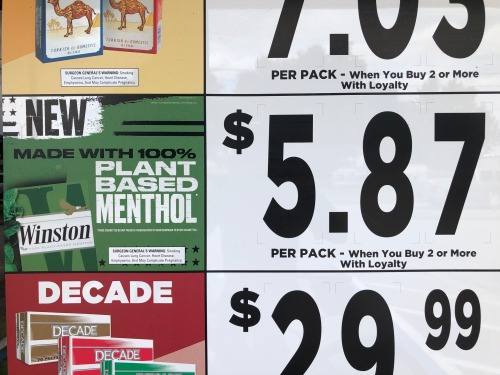
Now I’m sure that plant-based menthol is better than a synthetic blend of nasty chemicals, but aren’t we kind of splitting hairs here when it comes to tobacco anyway? I don’t know that I have seen a greater disconnect since the 1970s when regional soft drink maker Vess touted its sodas as being “cholesterol-free.” Come on, man. Who puts bacon in their sodas anyway?
Meanwhile, marketers can argue that caveat emptor allows us to wash our hands of responsibility, but sometimes I have to think there is a special place in Hell reserved for us right beside the lake of fire.
Maybe they’ll be serving Lite Beer there. One can only hope.
Dr. Nick Gerlich
